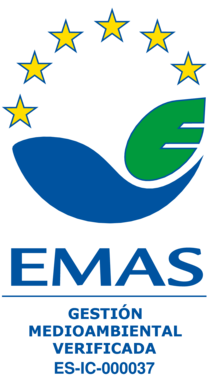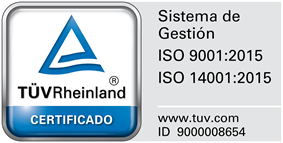Original Source: http://zoonation.org/zoophobia-an-alternate-reality/
Unfortunately, today we live in an age of ignorance and the misrepresentation of science by animal rights groups. Additionally, this has been propelled by the media, social media, and now by business owners. The latest announcement regarding unlikely partnerships is not the first time a company has been guided by public opinion. Unfortunately we are living in an alternate reality where public opinion matters more than science, so much that an era of zoophobia has begun.
Zoophobia is defined as an unreasonable and persistent fear of animals that can cause avoidance and panic. I would venture to say that there is now a second definition of zoophobia – An unrealistic and persistent fear of being associated with or a supporter of zoological facilities. Most phobias or mild fears begin with a misunderstanding or ignorance about what is feared. The beginning of this zoophobia era was initiated by a bad partnership, a partnerships forged in fear and not with understanding. This year SeaWorld decided to relinquish its fight against an orca-breeding ban. Not only did they stop fighting, but they also supported a re-written bill introduced to law in California that made breading orcas illegal. SeaWorld went a step further and partnered with the Humane Society of the United States (HSUS)–an organization that has been out spoken against animals in human care and proponents of abolishing the use of zoological facilities. While the some of the conservation projects are admirable such as ending shark finning, SeaWorld is set up to do this on their own and did not need the partnership. The partnership came down to one thing, improving public opinion, as a post-Blackfish recovery plan. This announcement set a precedent for the fate of all zoological and aquarium facilities.
Recently TripAdvisor made an announcement that they are ‘committed to improve wildlife welfare standards in tourism with industry-leading education effort and booking policy changes’. TripAdvisor is partnering with groups and will discontinue selling tickets to animal experiences that connect people with animals in human care. This new policy will go in effect in 2017 and include interactive programs such as swimming with dolphins. However they will continue to support interactive programs such as feeding programs and touch tanks under the supervision of zoo or wildlife officials. As you can see their announcement is not very clear at all. Although their new policy is a bit ambiguous, they do have the support of some major players in conservation as well as animal rights activist groups. If you’re surprised by this combination so are we, especially when two opposing forces like the Association for Zoos and Aquariums AZA) and the People for the Ethical Treatment of Animals (PETA). This is a mirror image of the SeaWorld HSUS partnership.
“We believe the end result of our efforts will be enabling travelers to make more thoughtful choices about whether to visit an animal attraction and to write more meaningful reviews about those attractions.”
Stephen Kaufer, CEO and Co-Founder of TripAdvisor
Along with the ban on interactive programs, TripAdvisor is launching an ‘educational’ portal where users will be able to learn about responsible interactions with wild, endangered, and captive animals for wildlife experts. It is centered on educating the public on eco-tourism and conservation. The public will learn about these experiences by clicking on a paw icon to read information from PETA as well as academics exploring all sides of the topic. It is interesting that they mention PETA before academics. This is just another example that indicates public opinion matters more than science. Opinion is not fact; therefore information from PETA should not be included with academic information, as it can be misleading as fact given its context. This is exactly how ignorance and a lack of understanding is perpetually integrated into conversations and negates or confuses the conclusions of scientific literature. This is used to play to the emotions and not to logic. Animal rights groups and mockumentaries such as Blackfish use this tactic to elicit an emotional decision about what a person believes, which allows a person to perceive the misinterpretation of facts or manipulated facts to draw conclusions inline with what animal rights activists want. By doing this they create an alternate reality leading to zoophobia.
This is yet another precedent that will become a major challenge to raising awareness to all of the good aspect of zoological facilities, such as conservation, education, breeding programs, and scientific research. Even PETA acknowledged this precedent. “By refusing to sell tickets to businesses that treat animals as entertainment or playthings, TripAdvisor is making a precedent-setting statement about the use and abuse of animals for entertainment. PETA looks forward to contributing to TripAdvisor’s industry-leading education portal, which will empower people around the world to make better decisions when it comes to animal-friendly travel,” said PETA Executive Vice President Tracy Reiman. It is clear that businesses are scared to go against public opinion even if it goes against science, which has only furthered the agenda of animal rights groups. For instance Steve McIvor of the World Animal Protection was quoted in the Guardian. He said, “We hope it will only be a matter of time before TripAdvisor will also come to realize that it has to end sales to all cruel wildlife attractions, such as SeaWorld where the animals endure a lifetime of abuse and highly stressful training to perform. Until then we will provide the best education we can on TripAdvisor’s website to steer people away from cruel venues like these.”
Many have called this an evolution of the animal and entertainment industries, a reflection of a change in public sentiment and awareness of animal welfare. However at Zoo Nation we feel this is a strongly misguided statement and that we have actually taken a step backwards. Social media forwards a good portion of this agenda and most of these decision based on ‘public sentiment’ has been emotional decisions, not scientifically informed decisions. This is how ignorance wins and this is how public opinion has become more important than science.
At Zoo Nation we support the scientific management of animals in human care. Research has come a long way and we agree that not all zoos are equal. However, the best shot of preserving species when populations are becoming decimated is through the use of zoological and conservation facilities. These facilities are on the forefront of cutting edge research, conservation methods, breeding programs, and education. Part of the problem that we are facing with an eminent sixth extinction is that people have become so disconnected with the natural world; they are under the illusion that they don’t need it. If your not connected then how can you care or be aware. Because of this people rationalize decisions on what needs to happen based on emotion and not based on knowledge. We have information at our fingertips and yet people still make decisions based on opinions and emotion. This is exactly why these new zoophobia trends continue to happen and are gaining speed. The best way to prevent the spread of zoophobia is by education and having the right information. That is why at zoo Nation we are committed to support the zoological and aquarium community by raising awareness, showing the impact they have on conservation and research, and educating the next generation in the hopes of preventing the next major extinction event driven by humans.













